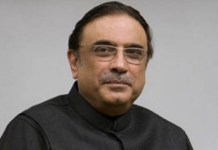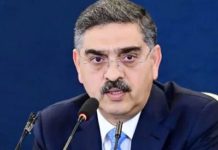
“This segment accounts for 75 per cent of the total consumers,” he said while speaking at a press conference. He said for the consumers using above 300 units, there will be a 50 per cent rise of the increase recommended by the National Electric Power Regulatory Authority (NEPRA). “We have reduced it to half of that as against NEPRA’s proposals because we have tried that these consumers are also not overburdened,” he maintained. He said the tariff will be valid for a period of 15 months, and after that it will be out of the system and there will be only regular fuel adjustments for the consumers.
The minister said the Pakistan Tehreek-e-Insaf government has given a 54 per cent subsidy to the tube-well consumers. “We are giving protection to the tube-well consumers and those related to the agricultural sector,” he added.
He said the previous government of Pakistan Muslim League-Nawaz did not enhance the power tariff despite NEPRA’s determination. He said there will be no increase in tariff for the small commercial consumers, who run shops and general stores in streets and towns. That segment accounts for 95 per cent of the total commercial consumers, he added.
The same facilities, he said, have also been upheld for the export-oriented industries, which will help increase exports and generate business activities in the country. “All this is being done according to the directions of Prime Minister Imran Khan. Consultations were made with the ministry of finance and other departments concerned,” he added.
The minister said currently there is zero load shedding on around 80% of feeders, while teams are working on the remaining 20% feeders to completely end load shedding. He said teams have also been constituted to check overbilling.
Omar Ayub said as per instructions of the prime minister, directives have been issued to provide three hours extra electricity to all feeders of Balochistan. The government, he said, has decided to interconnect the isolated areas of Gwadar and Makran with the national grid system. “The project costing Rs 18 billion will be completed by 2021. Currently the area is getting 100MW electricity from Iran,” he added.
He said there are around 29,000 regular legal tube-wells in Balochistan, while another 12,000 tube-wells are illegal. The illegal tube-wells, he said, will be disconnected within three months. The government, he added, is also trying to convert the tube-wells in Balochistan on solar energy as negotiations are in progress to ink a $4 billion agreement with Saudi Arabia for the purpose.
The minister said the Oil and Gas Regulatory Authority (OGRA) has determined the total revenue requirements for FY 2019-20 as Rs 541 billion, which include Rs 54 billion on account of prior years’ circular debt. Based thereon, the OGRA has determined the average cost of supply of indigenous gas as Rs 738/MMBTU, he added.
The present tariff, he said, can generate total revenue of Rs 397 billion during the year, resulting in a revenue shortfall of Rs 144 billion. Therefore, revisions in gas sale prices are inevitable, he added.
He said even with the increases proposed, 95% of the domestic consumers are being subsidized for a total of Rs 104 billion. “Around 45% of the domestic consumers, who are currently paying only Rs 121/MMBTU, will not face any price increase and their tariff is fixed at only 16% of the cost of supply,” he added.
Omar Ayub said around 95% of the domestic consumers are being cross-subsidised by the high-end domestic consumers and other sectors. The major reason of the high bills during winter is inefficient and continuous use of gas in geysers for water heating and heaters for space heating, he added.












